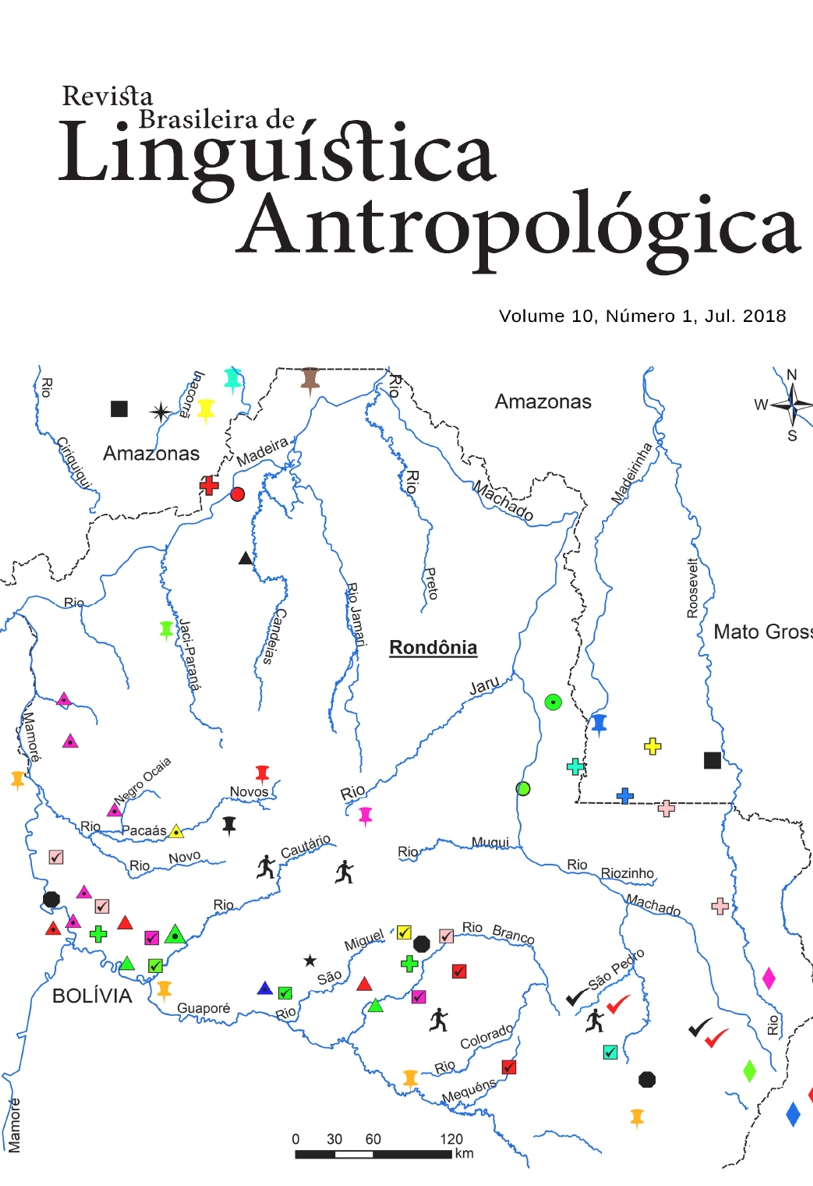Rondônia. Teaching Memory of activities carried out with the Puruborá and Kujubim peoples, Rondônia, included in two CIMI / RO regional travel reports for 2015 and 2017
DOI:
https://doi.org/10.26512/rbla.v10i1.19057Keywords:
Purubora. Kujubim. Languages recalled. Rondônia. Teaching of Languages no more spoken.Abstract
I present memories of research activities and teaching of two languages once spoken in the State of Rondônia, the Kujubim (Txapakúra family) and Puruburá (Puruborá family, Tupí stock). The activities were carried out in communities Puruborá and Kujubim with the participation of local teachers and reminders of their respective languages. The information provided also reveals the state of the art of the linguistic material existing on the two languages and how the Puruborá and Kujubim conceive the teaching of what is possible to recover from the languages of their ancestors.
Downloads
References
Galúcio, Ana Vilacy. “Puruborá: notas etnográficas e linguísticas recentes”. Boletim don Museu Paraense Emílio Goeldi ”” Série Ciências Humanas, vol. 1, no . 2: 159”“192, 2005.
Monserrat, Ruth Maria Fonini . Notícia sobre a língua Puruborá. In: Ana Suelly Arruda Câmara Cabra; Aryon Dall’Igna Rodrigues. (Org.). Novos Estudos sobre Línguas Indígenas. 1ed.Brasília: Editora UnB, v. , p. 9-22, 2005.
Downloads
Published
How to Cite
Issue
Section
License
Copyright (c) 2018 Revista Brasileira de Linguística Antropológica

This work is licensed under a Creative Commons Attribution 4.0 International License.
Authors who publish in RBLA agree to the following terms:
a) Authors maintain the copyright and grant the journal the right of first publication, and the work is simultaneously licensed under the Creative Commons Attribution License, which allows the sharing of the work with recognition of the authorship of the work and initial publication in this journal.
b) Authors are authorized to assume additional contracts separately, for non-exclusive distribution of the version of the work published in this journal (eg, publish in an institutional repository or as a book chapter), with recognition of authorship and initial publication in this journal.
c) Authors are allowed and encouraged to publish their work online (eg, in institutional repositories or on their personal page) at any point before or during the editorial process, as this can generate productive changes, as well as increase impact and citation of the published work.







